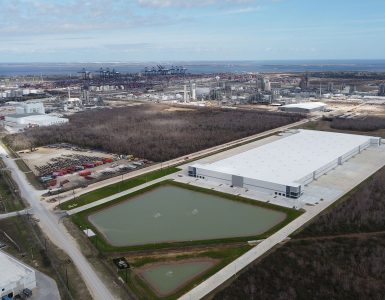New Report Highlights How Real Estate Sectors are Adapting to Pandemic
Institutional Real Estate Inc., Feb. 23, 2021
While COVID-19 caused a national economic slowdown, the commercial real estate industry has felt the effects unevenly across geographies and property sectors. Fourth-quarter market reports from Transwestern Real Estate Services (TRS) illustrate that while the office sector is suffering its worst downturn since the Great Recession, the industrial sector is surging ahead to meet an uptick in demand for logistics space fueled by trends reinforced during the pandemic.
OFFICE SECTOR
The economy suffered significant job losses in the first half of the year but
has recovered 66% of office-using jobs lost since March 2020. Tenants are
delaying major real estate decisions until there is greater clarity on the
vaccine rollout timing and a safe return to the workplace. Nationally, office
vacancy rose to 11.3 percent and another 35.7 million square feet of negative
absorption was posted in the fourth quarter. Asking rents reflected 2.6 percent
annual growth at year end, though effective rents are lower due to generous
concessions landlords are offering in some markets.
Despite many companies accommodating a more flexible work environment, Transwestern CEO Larry P. Heard expects businesses to return to the office post-pandemic to fuel collaboration and gain a competitive advantage.
INDUSTRIAL SECTOR
A 44 percent boost in online shopping during 2020 caused a sharp uptick in
e-commerce activity and continues to intensify demand for warehouse and
distribution space across the U.S. Additionally, manufacturing ended the year
at a six-year high, with PMI climbing to 57.1 in December. Industrial vacancy
closed the year at 5.5% and asking rents climbed to $6.73 per square foot,
marking the ninth consecutive year of rent growth. Nationally, 444 million
square feet of industrial space is currently under construction, including a
significant number of speculative projects.
With continued demand from investors, occupiers and logistics companies, Heard says that the only headwinds facing the industrial market are a lack of skilled workers and the need for even more new construction to meet demand for modern logistics space.
HEALTHCARE SECTOR
After months of unprecedented challenges driving healthcare delivery decisions,
demand for medical office space picked up in the fourth quarter in several
markets, including Atlanta and Houston, which posted 92,000 square feet and
46,000 square feet of positive absorption, respectively, as small tenant
leasing activity returned for the first time since the onset of the pandemic.
That said, the sector is undergoing fundamental shifts in service delivery,
with a heavier focus on telehealth capabilities and the emergence of shared
workspaces to reduce overhead and operations costs.
As the healthcare sector recovers, both medical office and life sciences assets should remain attractive to investors, Heard said. Evolving patient expectations and strong job growth in these areas provide new opportunities for real estate to support effective healthcare delivery. Download the full report for the U.S. office market and U.S. industrial market.
Research Roundtable: Industry Experts Share Their Views on the State of Real Estate and the Economy
Institutional Real Estate Inc., Feb. 1, 2021
“The effects from the pandemic will linger into the coming year and the impacts will differ significantly across the nation as well as across property types,” said Doug Prickett, CRE, senior managing director of research and investment analytics at Transwestern Investment Group.
Buying Value-Add Office Properties In Houston Is A Big Gamble Right Now. Investors Are Doing It Anyway
Bisnow, Feb. 2, 2021
“It’s a great time for a user to buy a vacant office building,” Transwestern Executive Vice President Michelle Wogan said. “Is it a great time for an investor? Yes, it is, as long as you can hold it for five years or longer.”
Knotel bankruptcy does not signal the end of flexible offices in New York, brokers say
ExBulletin, Feb. 1, 2021 (originally published in Crain’s New York Business)
The bankruptcy should also provide Knotel owners with much-needed clarity on the future of the office space the company currently occupies, Stephen Powers, of Transwestern Real Estate Services, said.
Pandemic Has Twin Cities Law Firms Stepping Up Efforts to Downsize Offices
Star Tribune, Feb. 2, 2021
Mike Salmen, the lead broker at Transwestern who negotiated F & B’s new lease, said downsizing offices “is happening around the country [and] we are seeing it with all different types of firms.”
Transwestern Kicks Off Inland Empire Industrial Projects
Commercial Property Executive, Feb. 24, 2021
Transwestern Development Co. has broken ground on a pair of speculative industrial projects totaling more than 483,500 square feet in a bid to capitalize on growing e-commerce demand in Southern California’s Inland Empire.
























